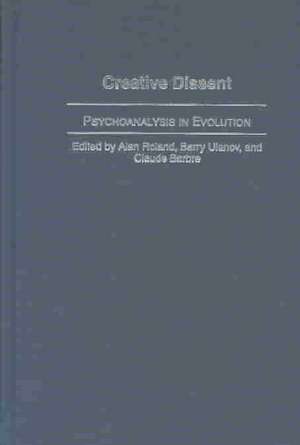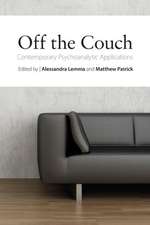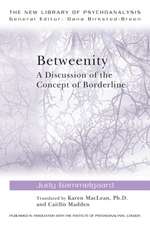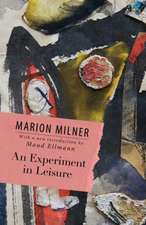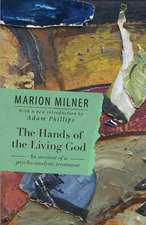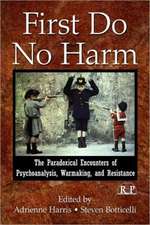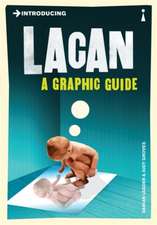Creative Dissent: Psychoanalysis in Evolution
Editat de Alan Roland, Ann Ulanov, Claude Barbreen Limba Engleză Hardback – 29 dec 2003 – vârsta până la 17 ani
Preț: 439.60 lei
Preț vechi: 708.78 lei
-38% Nou
Puncte Express: 659
Preț estimativ în valută:
84.12€ • 88.05$ • 70.01£
84.12€ • 88.05$ • 70.01£
Carte tipărită la comandă
Livrare economică 31 martie-14 aprilie
Preluare comenzi: 021 569.72.76
Specificații
ISBN-13: 9780275980610
ISBN-10: 0275980618
Pagini: 304
Dimensiuni: 156 x 235 x 28 mm
Greutate: 0.62 kg
Ediția:New.
Editura: Bloomsbury Publishing
Colecția Praeger
Locul publicării:New York, United States
ISBN-10: 0275980618
Pagini: 304
Dimensiuni: 156 x 235 x 28 mm
Greutate: 0.62 kg
Ediția:New.
Editura: Bloomsbury Publishing
Colecția Praeger
Locul publicării:New York, United States
Notă biografică
ALAN ROLAND is a psychoanalyst and a training analyst on the Faculty and Board of Directors of the National Psychological Association for Psychoanalysis.The late BARRY ULANOV was McIntosh Professor of Literature, Emeritus, at Barnard College, Columbia University, and Editor for the Journal of Religion and Health.CLAUDE BARBRE is Executive Director of the Harlem Family Institute and Associate Editor for the Journal of Religion and Health.
Cuprins
Introduction by Alan RolandPsychoanalysis and Early DissidenceThe Anxiety of Influence in the Creation on Theory by R.G.K. Kainer and S. KainerThe Creative Dilemma: The Influence of Schiller's Aesthetics on the Life and Work of Otto Rank by Claude BarbeWhy Did Ferenczi and Rank Conclude that Freud Had No More Emotional Intelligence than a Pre-Oedipal Child? by Robert KramerThe Evolution of Psychotherapy Since Freud by E. James LiebermanWhat Is a Fact? Eva Rosenfeld and Historiography by Paul RoazenFreud's Analysis of His Daughter Anna: A Confusion of Tongues by Arnold Wm. RachmanThe Psychoanalytic ProcessThe Psychoanalyst and Freedom by Jeffrey B. RubinChanging Clinical Orientation, Humor, and the Transitional Space by Peter L. GiovacchiniIn Praise of Small Talk by Julie Joslyn BrownImagining Ithaca: The Impact of the Analyst's Worldview by Spyros D. OrfanosBeastly Memories Live in Beastly Memory Land by Judith L. AlpertCinderella's Gender Trouble (And How She Overcame It) by Doris BrothersPsychoanalysis and CultureEgo in Evolution Revisited: The Menakers' Contribution to a New Psychoanalytic Psychology of Culture by Ludwig Janus and Brigitte Janus-StanekHuman Fascination with Violence as a Response to Mortality Awareness by Daniel LiechtyConsidering a Multicultural Perspective for Psychoanalysis by Rosemarie Perez FosterRace in the Analytic Situation: Reflections of an African American Therapist by Dolores O. MorrisReflections on Culture and Psychoanalysis by Paul LipmannPsychoanalysis in a Cold Climate by Robert PrincePsychoanalysis and ReligionPsychoanalysis and the Spiritual Quest: Framing a New Paradigm by Alan RolandFreedom to Choose Between Goodness and Badness: Self-Regulation and the Temptation to be Evil by Ester Schaler BuchholzKohut and God by Charles B. StrozierMysticism and Negative Presence by Barry UlanovAfterword-Authenticity by Esther MenakerContributorsIndex
